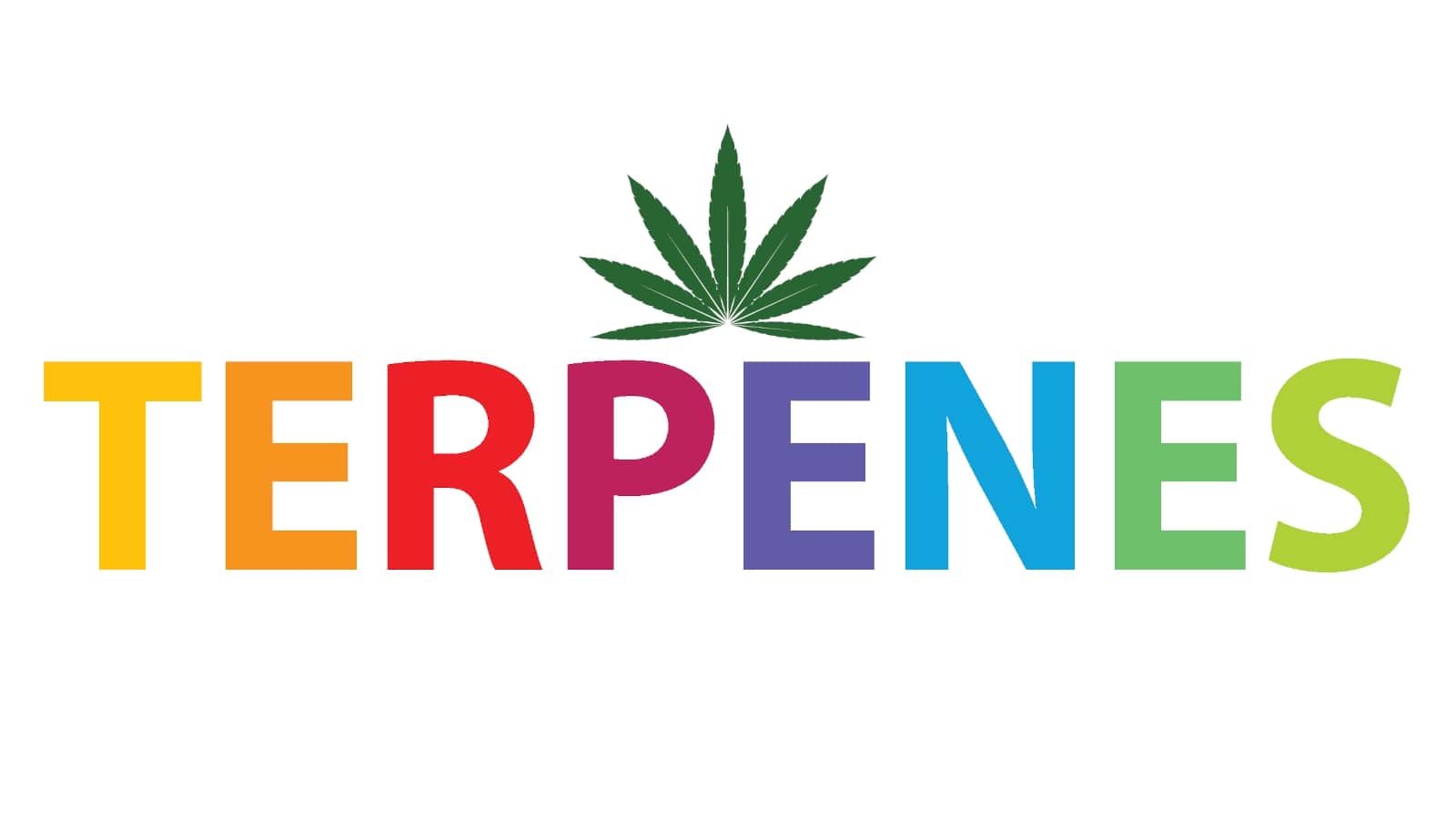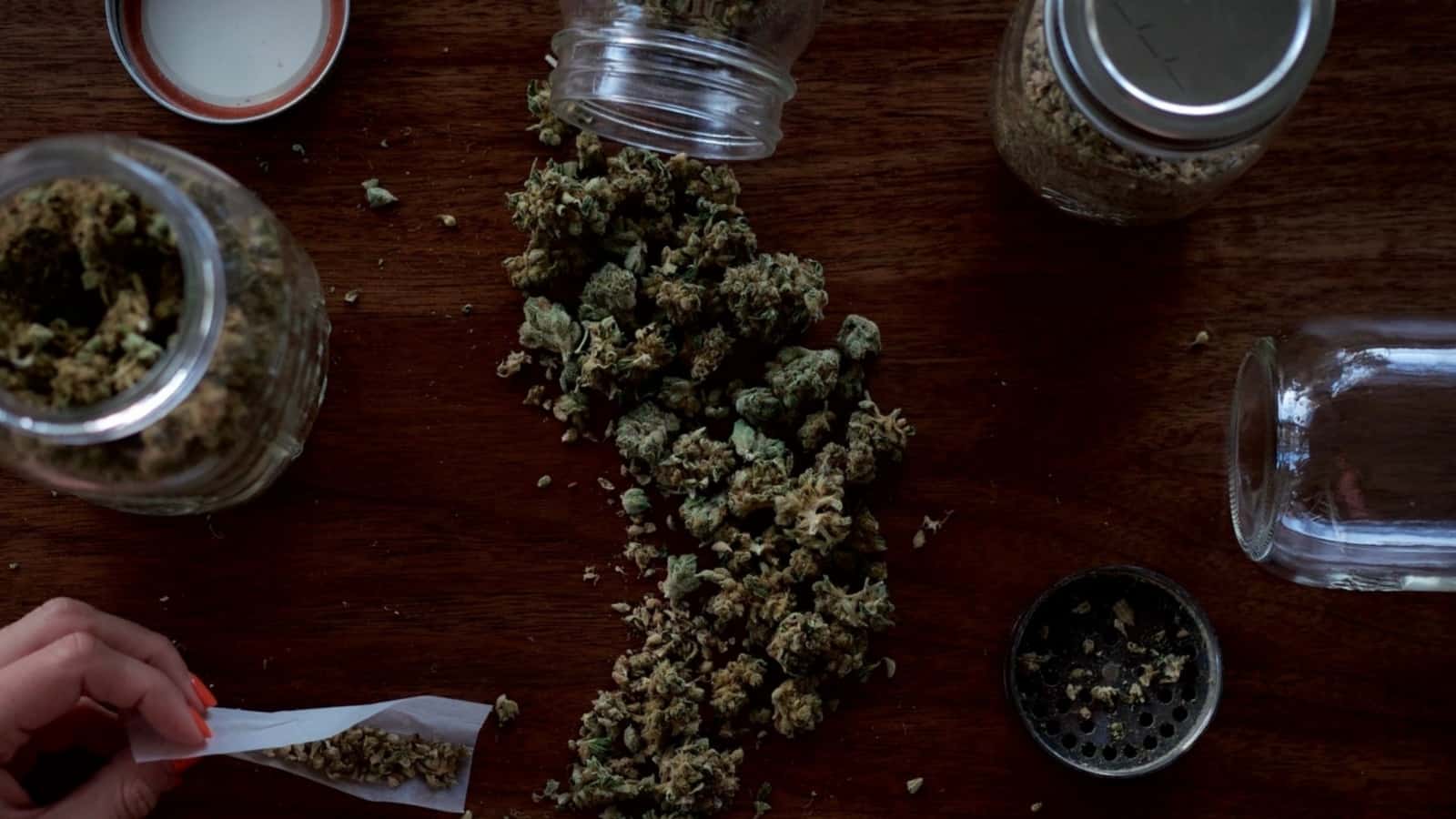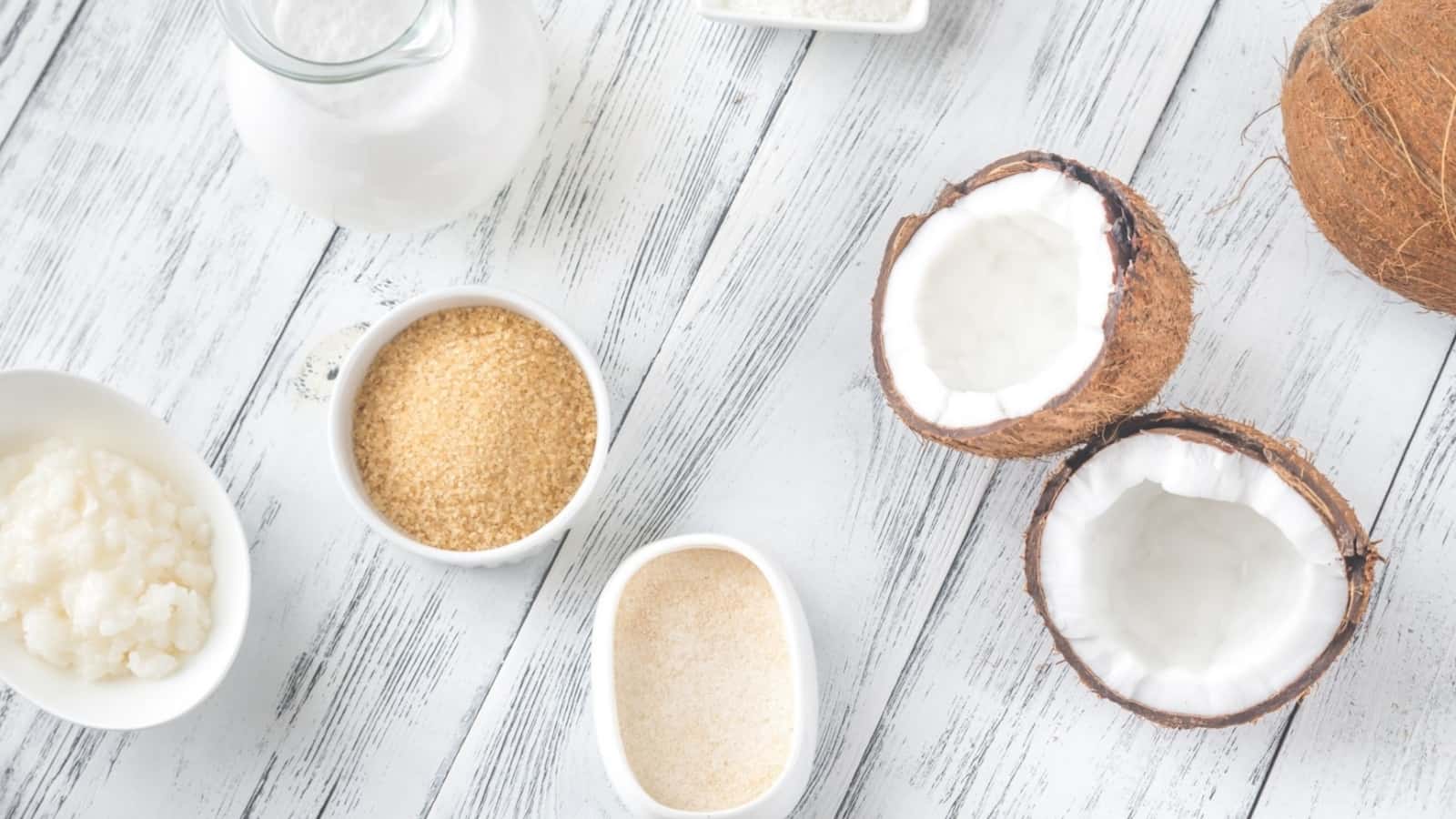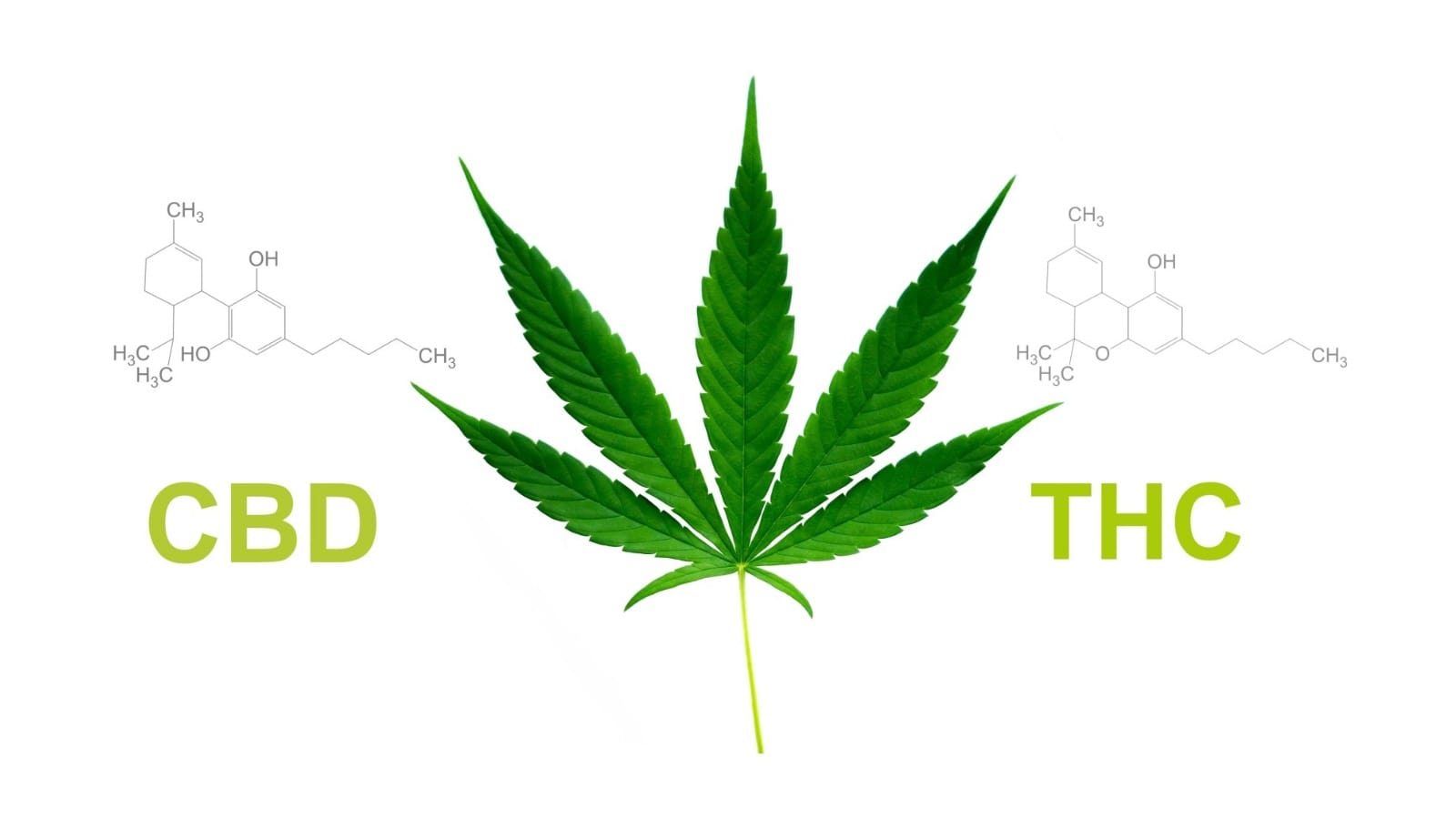
CBD vs. THC: Get The Facts About The Difference
- CBD vs. THC: Chemical Structure
- CBD vs. THC: Psychoactive Components
- CBD vs. THC: Legality
- CBD vs. THC: Medical Benefits
- CBD vs. THC: Side Effects
- CBD vs. THC: Drug testing
- The Benefits Of Taking CBD And THC Together
- Why Does CBD Oil Include THC?
- Conclusion
The curiosity of the consumers is ever-increasing since Australia legalised medical marijuana in 2016.
There are various types of cannabis plants grows, and hemp that offers a different medical and recreational experience.
Cannabis plant strains contain two chemical compounds - Cannabidiol (CBD) and Tetrahydrocannabinol (THC).
CBD mostly comes from hemp plants and THC is found in the flowers (bud) and commonly in the “marijuana” type of cannabis plant.
Hemp, marijuana, weed, and are all the same cannabis plant, and there are different species of cannabis plants that include: Sativa, Indica and Ruderalis.
Hemp mostly originates from the Cannabis Sativa plant and marijuana mostly from the Sativa and Indica cannabis plant.
Hemp, as defined in legal terms, should not contain more than 0.3% of THC. You can get CBD in various forms like edibles (gummies, cookies, wafers, etc.), capsules, gels and creams, extracts, oils, and more.
The main ingredient that produces the high feeling in cannabis products is THC. Even though THC gets you high, it also has scientifically proved medical benefits that help prevent seizures, kills pain and treats sleep apnea.
So how does CBD and THC work on my body? Both the compounds - CBD & THC - perfectly interconnect with your body’s Endocannabinoid System, and these different effects are seen throughout the human body.
Table of Contents.
Read further to understand everything about these incredible cannabis compounds.
CBD vs. THC: Chemical Structure
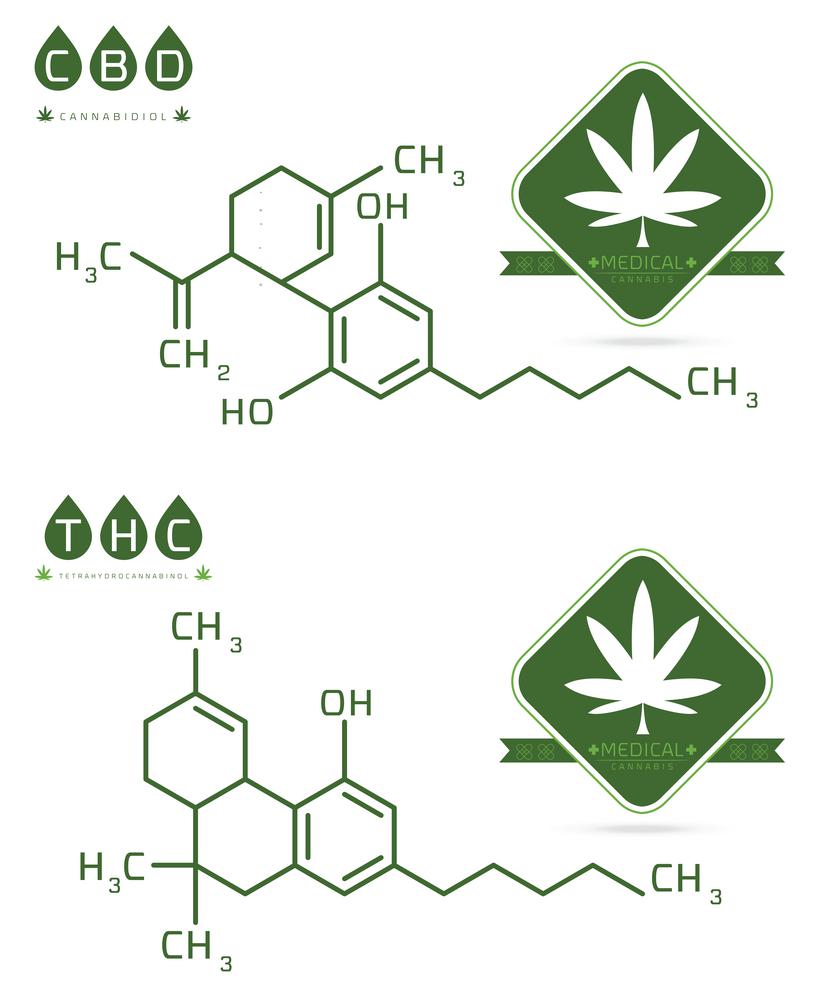
The atomic structure of CBD & THC is almost identical - Carbon Compounds are 21 units, Hydrogen Atoms are 30 units, and Oxygen Atoms are 2 units.
The effect of these two cannabis compounds on your body are vastly different due to their different atomic structure. The chemical structure makes these two sibling compounds have different effects on the human body.
The human body contains endocannabinoids, and its chemical composition perfectly matches the chemical structure of CBD & THC, thus allowing a perfect and amicable blend and interaction with our Cannabinoid Brain Sensors.
The interaction of CBD and THC with our endocannabinoid system directly impacts the discharge of your brain’s neurotransmitters.
Neurotransmitters in the human body major have a significant role to play in transmitting messages from one cell to another. Few examples of these neurotransmitters messages’ are - anxiety, agony, nap, immunity, etc.
CBD vs. THC: Psychoactive Components
Regardless of their identical chemical composition, CBD and THC have different psychotomimetic or psychoactive effects on the human body.
The psychoactive effects of CBD are different from those of THC due to their chemical structure. The ‘high’ feeling produced with CBD is comparatively on the lower side when compared with THC.
The effects of CBD are effective at treating epilepsy, depression, and nervousness without a drowsy high feeling. So much so that it is legal to drive after taking CBD in Australia.
THC, on the other hand, interacts with the CB1 cannabinoid receptor, a brain receptor also termed as Cannabinoid-1. It produces that familiar sensation of Ecstasy or High which made cannabis Australia’s most used recreational drug!
Whereas, CBD compound does not bind with CB1 receptors leaving you with all the benefits and none of the high feeling.
Research shows that CBD does interact with the CB1 receptor, but its binding is very weak. Hence, CBD requires THC to secure itself to the CB1 receptors.
The result of consuming both compounds is that CBD can bind with the CB1 receptors and reduce the intense high feeling that some prefer to avoid.
This is just one of many examples of how different cannabis strains can have varying effects on our bodies.
CBD vs. THC: Legality
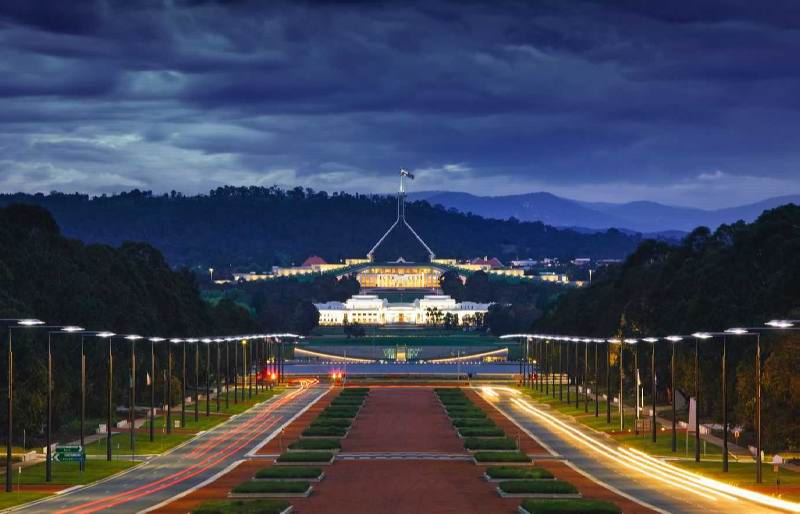
Australia has legalised medicinal cannabis and categorised CBD and THC are separate scheduled drugs.
It is easier to access CBD oil than THC oil in Australia, but cannabis clinics are available to streamline your approval for any medicinal cannabis medication.
CBD is currently a schedule 4 drug that requires a doctors prescription to gain access to the medicine from a pharmacy or chemist.
Soon, however, CBD oil may be moved down to a schedule 3 drug that is available over-the-counter at pharmacies without a doctors prescription.
THC classified as a schedule 8 drug that requires both a doctors prescription and approval from the TGA (Therapeutic Goods Administration) federal government department.
In Canberra, ACT, growing and consuming marijuana for your own personal use has been legalised. You can grow cannabis plants at home and harvest them yourself for personal use at home without fear of arrest of fines from police.
Read more about legal weed in Canberra here!
In the USA, there is continual evolution in the legal aspects of cannabis laws giving due consideration to all the angles. In principle and as per the Federal Law, CBD falls into the category of Schedule I drug.
Though hemp is not listed in the Controlled Substances Act, still, the Food and Drug Administration (FDA and Drug Enforcement Administration (DEA) categorises CBD as a Schedule I Drug.
Nevertheless, Washington, California along with 33 more states, have legalised Medical Cannabis with a high level of THC and made a necessary alteration in most of their state laws, which are related to cannabis and cannabis products.
CBD vs. THC: Medical Benefits
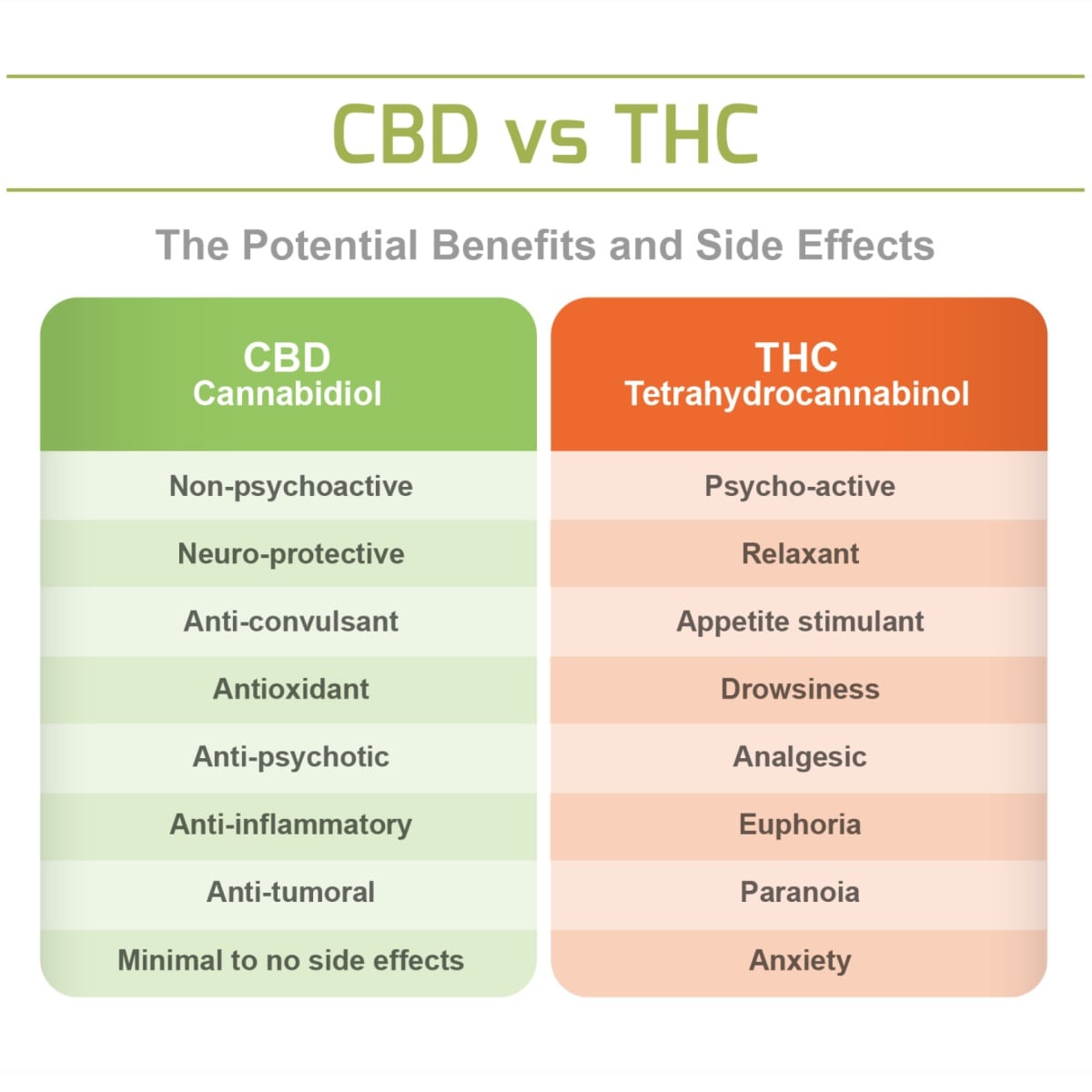
CBD and THC have most of the medicinal benefits in common. Most of the ailment and disorder can be relieved with the help of these two cannabis compounds.
Nevertheless, CBD cannot trigger the euphoric effect on the brain, unlike THC. But still, most of the users favour CBD as it does not carry any significant side effects.
Epidiolex contains CBD, and it is the first FDA approved prescribed medicine.
Epidiolex is reviewed and discussed by Epilepsy Action Australia as a suitable treatment for adults and children suffering from seizures.
In late 2019, the Australia government gave Epidiolex priority review status to fast track the drug approval process.
Even though cannabis medication has a strong focus on treating epilepsy, it is available to treat any chronic condition that has existed for more than three months.
CBD can be effective at treating these symptoms:
- Physical Pain
- Seizures
- Swelling, Soreness, or Inflammation
- Different types of psychological disorders - Psychoactive or psychotomimetic
- Bowel disorders
- Revulsion or nausea
- Severe Headache or Migraine
- Dejection or depression
- Nervousness
THC can be effective at treating these symptoms:
- Physical Pain
- Sleeplessness
- Hunger Loss
- Ease Muscle Movements and Spasticity
- Revulsion or nausea
- Dejection or depression
- Nervousness
CBD vs. THC: Side Effects
One of the significant benefits of cannabis is that you can’t overdose on CBD and THC.
When it comes to side effects, studies have shown that CBD has no direct side effect on the human body.
Side effects from CBD do exist, but the cause is most likely due to a combination of CBD and the reactions of other prescribed medication.
Following are the short-term side-effects of CBD:
- Changes in appetite
- Tiredness
- Loss of weight
- Giddiness or shakiness
- Looseness of the bowels
There are also short-term side-effects from consuming THC that include:
- Enhanced heart palpitation
- Dryness in mouth
- Sore and red eyes
- Slower body reflexes
- Loss of memory
- Nervousness or anxiety
- Lack of co-ordination
All the above-mentioned side effects or the symptoms are because of the psychoactive properties presented in cannabis compounds.
But it is a proven fact that none of the compounds - CBD or THC - are fatal or could cause an overdose!
If you take a high dosage of THC, it might make you uncomfortably high, but it will not cause any real damage in the short-term.
The long-term use of THC may have adverse effects on people with mental illness. It is also recommended that children and teenagers avoid consuming marijuana or THC as it may have negative effects on their mental and cognitive development.
CBD vs. THC: Drug testing
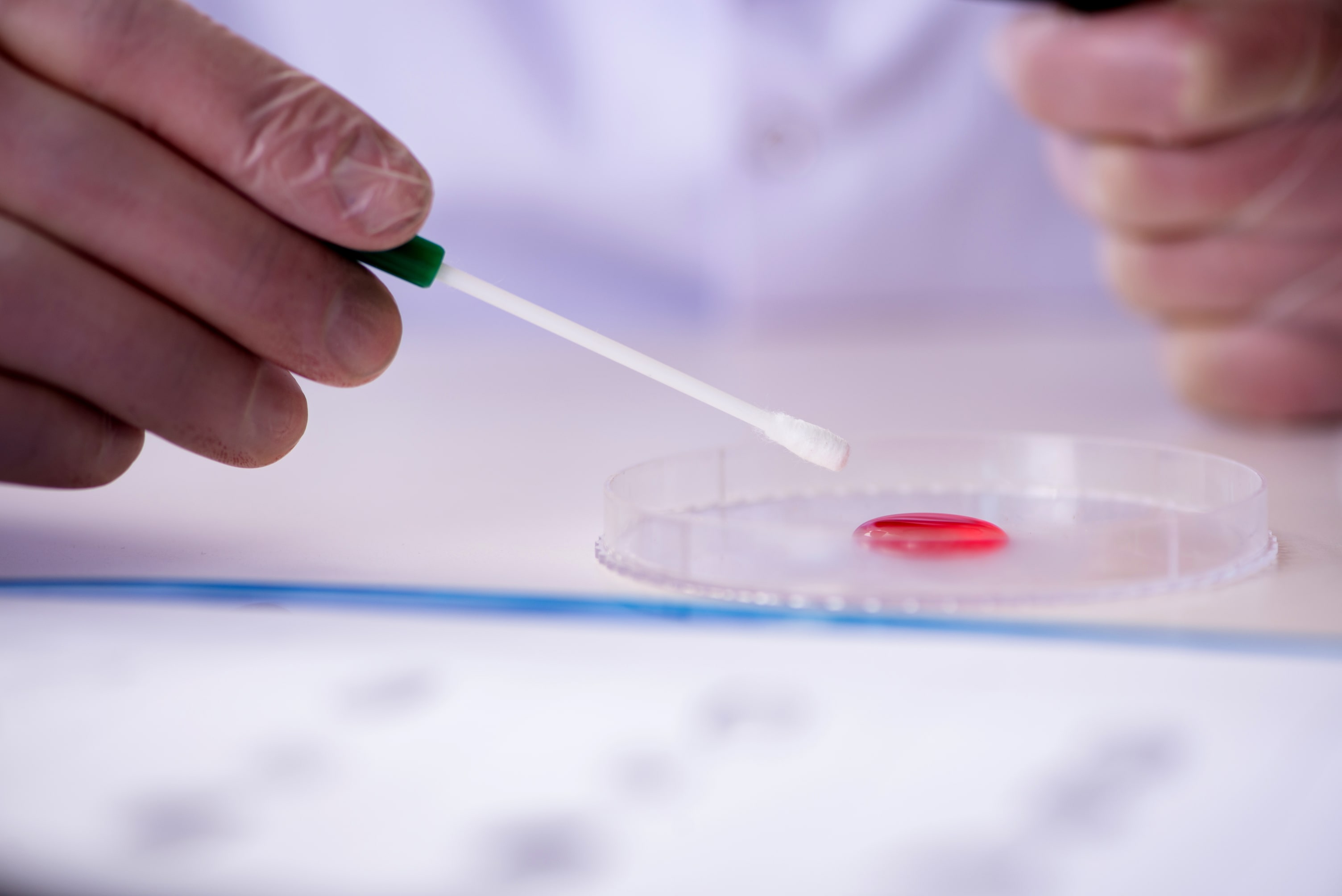
Once you take any of these cannabinoids - CBD or THC - their residue is found in our saliva, urine, hair and also deposited into the body’s fat. Any simple CBD-sensitive drug test can locate cannabis in your system very easily - not only after a few days but even after weeks of their consumption.
Not all the available drug tests can detect CBD within your body. The majority of drug tests in Australia only look for THC as it is the intoxicating compound.
The purpose of drug tests is to trace the chemical residues of drugs that can impair your ability to function, so the police or work tests focus on THC or Marijuana.
Specific CBD-sensitive tests can easily trace the CBD residues, but these are not as common in Australia.
Even though hemp plants are known for their high levels of CBD, they also produce small amounts of THC. So if you were to smoke the dry bud from a hemp plant for CBD, you would most likely be intaking THC compounds as well.
You can purchase pure CBD oil that has no THC to avoid failing any drug tests. CBD isolate, and CBD broad-spectrum are two types of oils that you can buy without any THC compounds.
The Benefits Of Taking CBD And THC Together
Mixing both CBD and THC gives patients “the entourage effect” that greatly increases the treatment of symptoms.
The benefits of CBD and THC together has been proven to have better results at treating chronic pain, preventing seizures, cancer-related symptoms and much more.
The Entourage Effect is the feeling and medicinal benefits patients get when multiple cannabis components work together. Research shows that the Entourage Effect from patients having CBD and THC together produces better medicinal benefits.
Taken alone, CBD and THC may have therapeutic effects that will treat various symptoms, but together the overall ability to treat specific symptoms can increase dramatically.
Why Does CBD Oil Include THC?
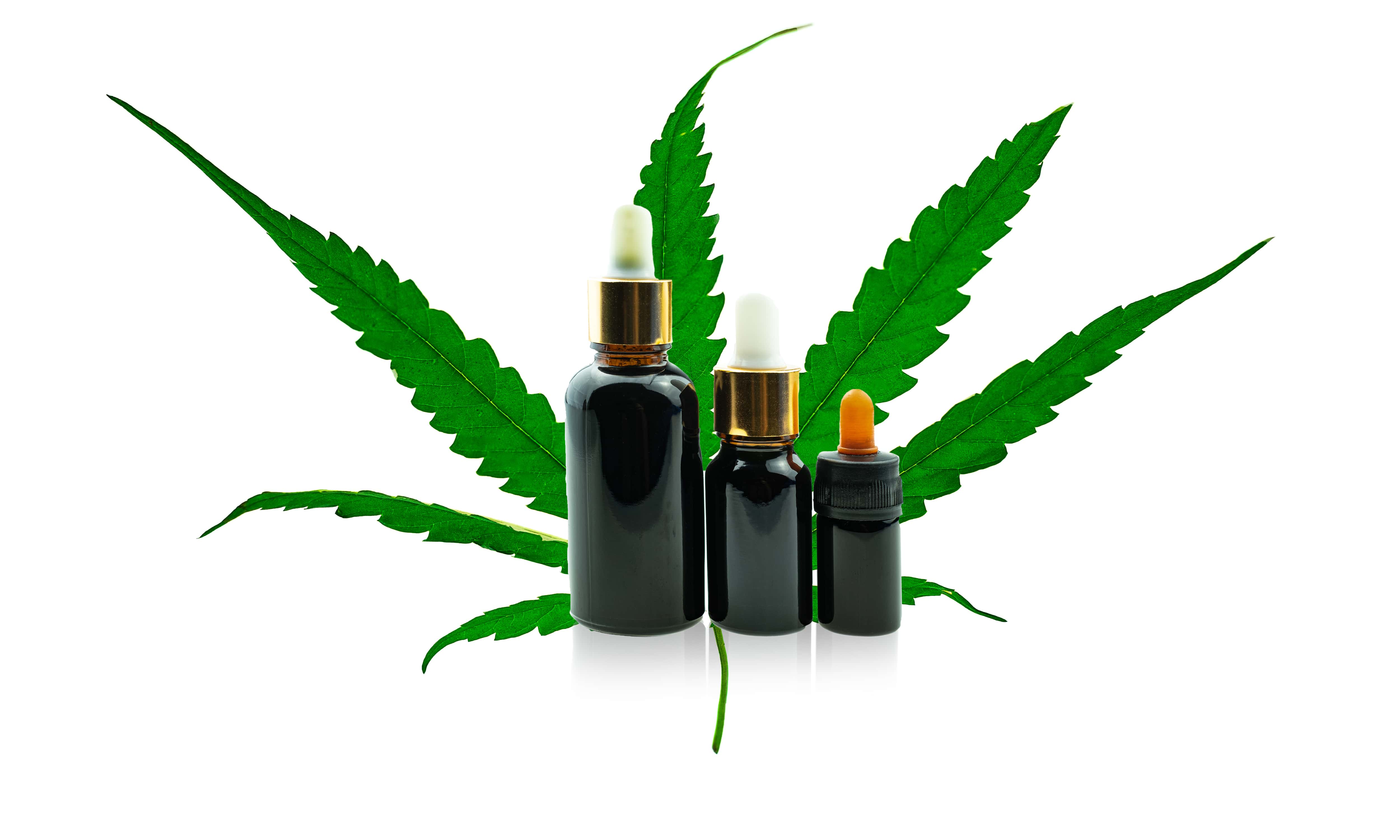
One of the most commonly asked questions around CBD oil products is “why does CBD oil contain THC if they are two separate compounds?”.
There are hundreds of cannabis compounds, and when you harvest the cannabis flowers (bud), you will have a product that contains CBD, THC, CBN and many more compounds.
As mentioned earlier, the two primary compounds found in the cannabis plant are - CBD & THC. These are prominent due to their therapeutic effects on the human body.
You can buy cannabis oils that include all the cannabis compounds extracted from the plant, including CBD and THC, or you can buy CBD pure CBD isolate oil without any other compounds.
Marijuana plants have a high level of THC and CBD, and hemp plants have a high level of CBD and low level of THC.
When buying CBD oil or other cannabis products, refer to the type of cannabis plant and the list of cannabis compounds to understand its effects on your body.
Conclusion
CBD and THC are both different cannabis compounds that each have unique effects on the human body.
They both have medical and therapeutic effects that help prevent seizures, stops pain, and treats anxiety, depression and many more symptoms.
CBD is non-intoxicating, so you can drive after taking it, but be wary of the CBD product as some may include trace amounts of THC.
THC is intoxicating and gives you a ‘high’ feeling and is effective at treating sleep apnea, chronic pain, muscle spasticity and eating disorders.
CBD and THC both work in different ways and have excellent medical benefits when working together.
To understand whether CBD, THC or a combination of both is a suitable treatment for yourself, we recommend talking with your local GP or a specialist at a cannabis clinic.
Here is a summary of CBD and THC in Australia.
| Question | THC | CBD |
|---|---|---|
| Is it Legal? | Medical Use | Medical Use |
| How To Access? | Prescription and Government Approval | Prescription |
| Side Effects | Psychoactive/Intoxicating ‘High’ | Minor |
| Appears On Drug Tests? | Yes | Mostly No |
| Safe To Drive? | No | Yes |
| Treats Pain | Yes | Yes |
| Treats Nausea | Yes | Yes |
| Treats Migraine | Yes | Yes |
| Treats Anxiety | Yes | Yes |
| Treats Depression | No | Yes |
| Treats Seizures (Epilepsy) | No | Yes |
| Treats Insomnia | Yes | Yes |
| Treats Psychosis | No | Yes |
| Treats Eating Disorders | No | Yes |
What are your thoughts on CBD vs THC in Australia? Leave a comment below!

James King
James is an experienced writer and legal cannabis advocate in Australia. He answers all the questions about business, legalisation and medicinal cannabis.
Disclaimer: Cannabis Place are not doctors and we recommend consulting health professionals for accurate information. This site may contain information regarding drugs. This content is designed for an 18+ audience. Click here for our full disclaimer

